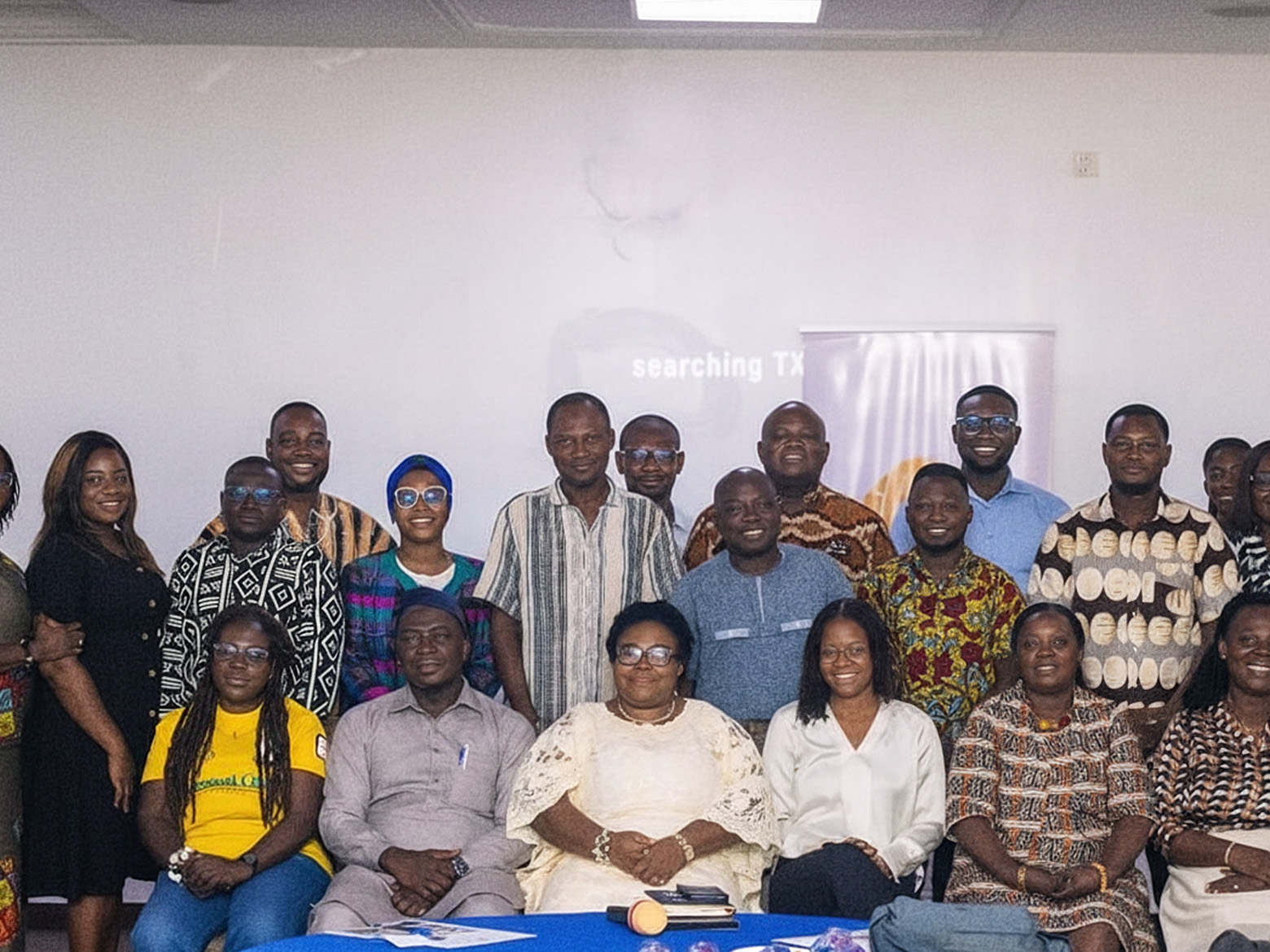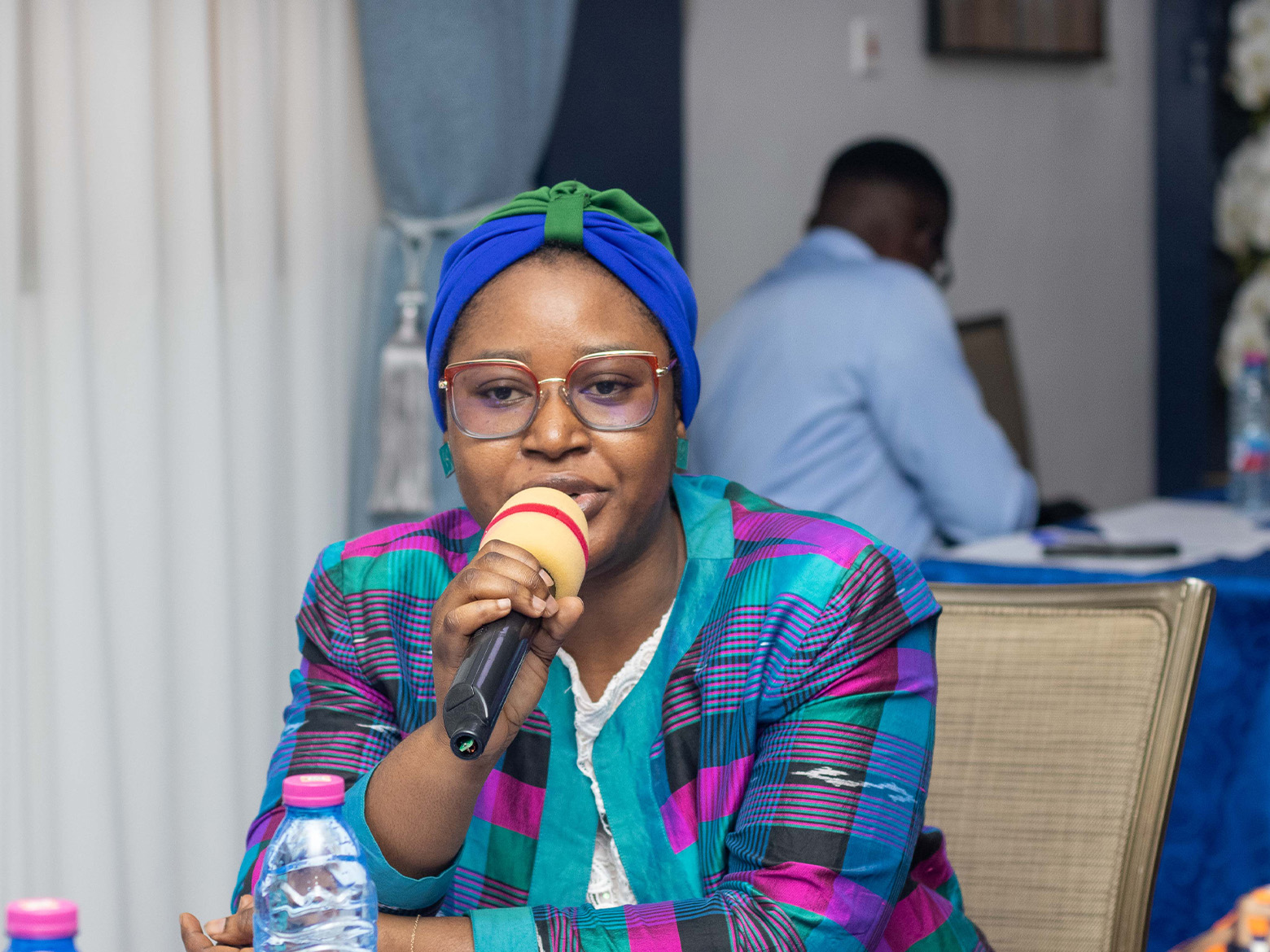
Stakeholders from the health, education and development sectors have reaffirmed their commitment to strengthening adolescent sexual and reproductive health education during the National Dissemination of the Baseline Findings of the Project: Co-Creating Contextually Appropriate Reproductive Health Education Teaching Approaches for 9–15-Year-Old Learners in the Upper East Region of Ghana (CATALYST), held on Wednesday, October 8, 2025, at TomReik Hotel in Accra, Ghana.
The CATALYST Project is a collaborative initiative between the University of Health and Allied Sciences (UHAS), Ghana, Right to Play (RTP), Ghana and the University of the Fraser Valley (UFV), Canada, with funding support from the International Development Research Centre (IDRC), Canada. The project seeks to promote play-based and evidence-informed approaches to reproductive health education for young learners in Ghana.
Delivering the opening remarks, Professor Lydia Aziato, Vice-Chancellor of UHAS and Principal Investigator (PI) of the CATALYST Project, expressed heartfelt appreciation to all partner institutions and the funding agency for their sustained commitment to improving adolescent reproductive health education.

Professor Aziato acknowledged the valuable contribution of Dr. Nomthandazo Malambo from IDRC for her active engagement and strategic guidance throughout the project’s implementation. She explained that Phase One (literature review) and Phase Two (baseline exploration of reproductive health education in the Ghanaian context) have been completed, while Phase Three, which focuses on developing appropriate play-based teacher delivery guidelines, is currently ongoing.
Ms. Josephine Mukakalisa, Global Director for RTP, emphasized the need to build stronger working relationships between the education and child protection sectors. She explained that the CATALYST Project aims to address long-standing challenges surrounding adolescent reproductive health, particularly gaps in teaching methods and cultural sensitivity within Ghana’s reproductive health education curriculum.

Ms. Mukakalisa expressed concern that despite several interventions by the Ghana Health Service and other agencies, many programmes have not achieved the desired impact due to fragmented implementation. She applauded the ongoing collaboration with institutions such as UHAS and UFV and lauded UHAS for its timely contribution to data collection and analysis. She reiterated RTP’s commitment to supporting government policies on reproductive health.
The Deputy Director-General in charge of Quality and Access at the Ghana Education Service (GES), Dr. Isahaque Munawaru emphasized the importance of reproductive health education in Ghana. He described it as a pressing national concern requiring collaboration between policymakers, educators and health professionals.
Ms. Suhuyini Karmil from RTP Ghana presented an overview of the project’s background and research objectives, citing limited access to information and services for adolescents as a key factor contributing to high rates of teenage pregnancy, gender-based violence and child marriage. She also outlined the expected outcomes including improved teacher preparedness, enhanced classroom engagement and positive gender norms among learners, especially adolescent girls in rural communities.
Dr. Mustapha Immurana, Director of the Centre for Health Policy and Implementation Research, UHAS Institute of Health Research presented findings of the baseline study. He indicated that teachers identified major barriers to effective RHE delivery, including cultural taboos, community and religious resistance, limited institutional support, lack of professional training, and overcrowded curricula. Nonetheless, over 80% of teachers employed innovative strategies such as interactive storytelling and role-playing to engage students and ease discomfort during RHE lessons.
Mrs. Theresa Oppong Mensah, National Director of the School Health Education Programme, GES, discussed the policy implications of the baseline findings. She pointed out discrepancies between existing national policy frameworks and actual implementation at the school level, stressing the need for policy realignment based on current evidence.

Representing the funding agency, Dr. Nomthandazo Malambo of IDRC, Canada, commended the CATALYST Project team for its dedication and collaboration. She highlighted the crucial role of research in shaping practical policies and called for the empowerment of teachers to serve as key drivers of change.
Dr. Malambo assured participants of IDRC’s continued support for locally led impactful projects and expressed optimism that the deliberations from the dissemination meeting would translate into tangible improvements in adolescent sexual and reproductive health education across Ghana.